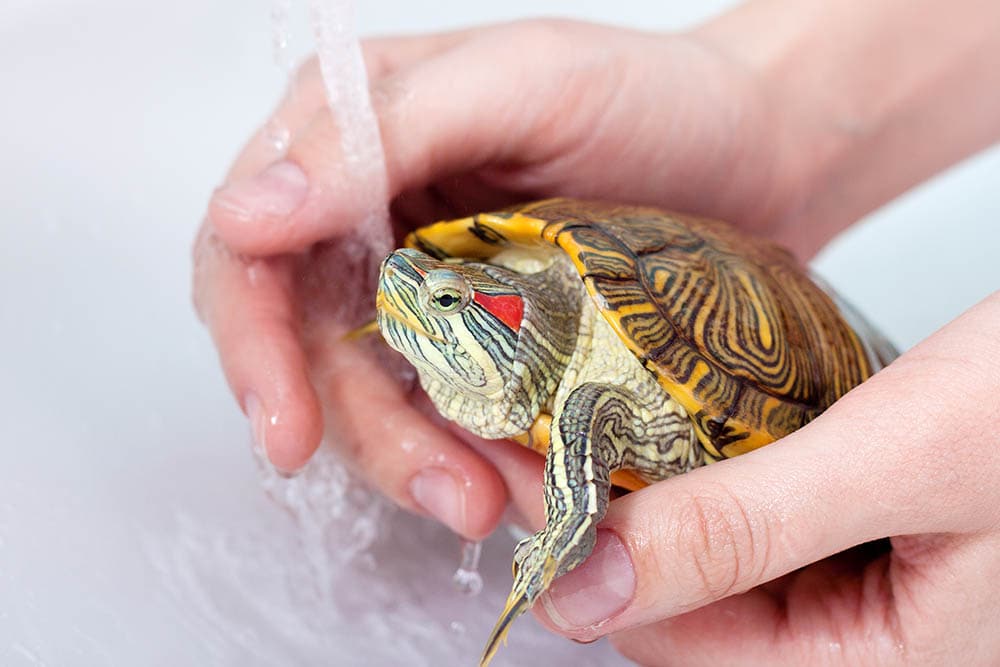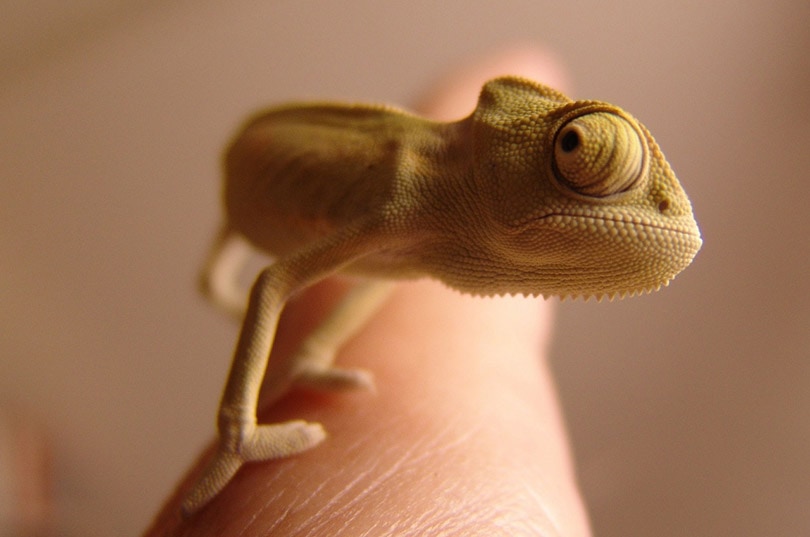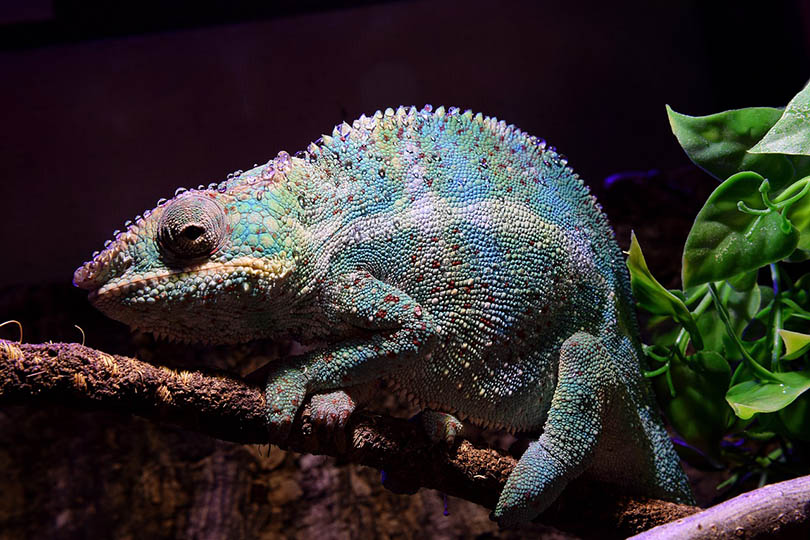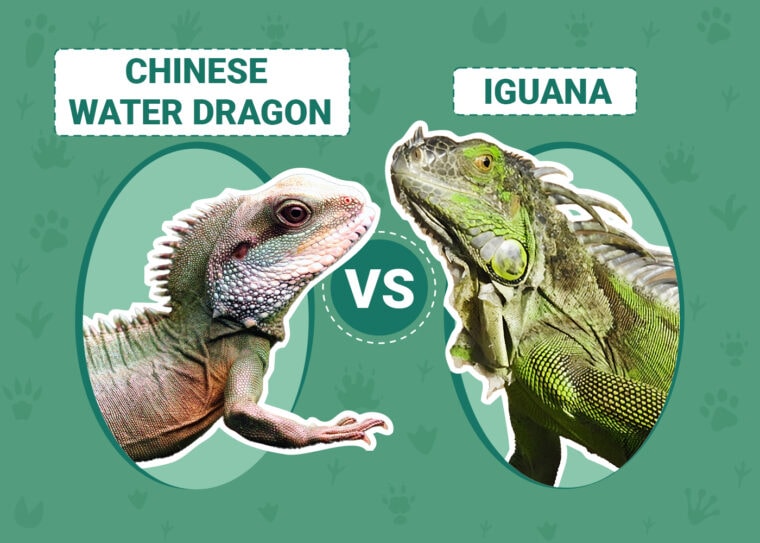
Click to Skip Ahead
Reptiles as pets isn’t a new phenomenon, but it is becoming more and more popular, especially among parents who want to teach their children some lessons about responsibility. These animals aren’t your typical cat or dog. They have particular life needs that must be met for them to live. Of all the reptiles to choose from nowadays, it is hard to know which is going to be the right choice for you or your family.
Both the Chinese Water Dragon and Iguana are reptiles, but they differ in many ways. Water Dragons look like smaller iguanas and spend a large portion of their time swimming. They are found in tropical rainforests near water and up in trees. On the other hand, iguanas are native to South and Central America. They are one of the most famous lizard pets but are a huge commitment because of the high level of care.
If you’re considering bringing one of these animals home, don’t take the decision lightly. Find out all you can about them and what exactly goes into keeping them healthy and safe before making a decision.

Visual Differences

At a Glance:

Chinese Water Dragon Overview

Behavior and Handling
There isn’t a single reptile that will ever become fully domesticated. Understanding how these animals react to their surroundings and getting them used to be handled makes the difference between an enjoyable experience and a commitment to an animal that won’t let you come close to it.
Young Chinese Water Dragons are better at becoming used to human interactions than adults. If they are not properly socialized with you or the other members in your house, they could get agitated and bite. These animals are prey in the wild and become easily frightened or startled. Try not to have them in a home that makes a lot of noise or put them around people or other animals that move too quickly.
Housing
An adequate enclosure is the most crucial part of owning a Chinese Water Dragon. Although small, these lizards need a lot of room to climb and swim. They require a minimum size tank of 40 gallons with lots of places to hide or climb branches. Most people use coconut fiber or Repti-bark as a substrate. Keep their temperature between 75°F and 100°F and use an incandescent light or ceramic heater to keep them warm.
Lighting is another crucial component of their tank. These lizards require UVB rays to help absorb vitamin D. Keep a full spectrum light on for 10 to 12 hours every day for them to bask in. Keep adult males separate from one another and do not ever put them in a tank with a different reptile species.
Health & Care

Signs of a healthy Chinese Water Dragon include clear eyes, active and alert personalities, full bodies and tails, clear noses, and regular eating habits. If they have a decreased appetite, weight loss, mucus in their mouth and nose, abnormal feces, or abrasions on their skin, then you need to take them to the vet right away. Common health issues include respiratory disease, gastrointestinal disease, and bone deficiencies.
Water dragons shed their skin, so make sure there is at least 60% humidity in the enclosure at all times to help them with this process. If they need additional help, bathe them in a large container of water or in a shed box.
Suitable for:
Older kids or adults who won’t get jumpy around them and are looking for a small starter pet. Chinese Water Dragons are good pets to introduce to people who haven’t owned reptiles before.

Iguana Overview
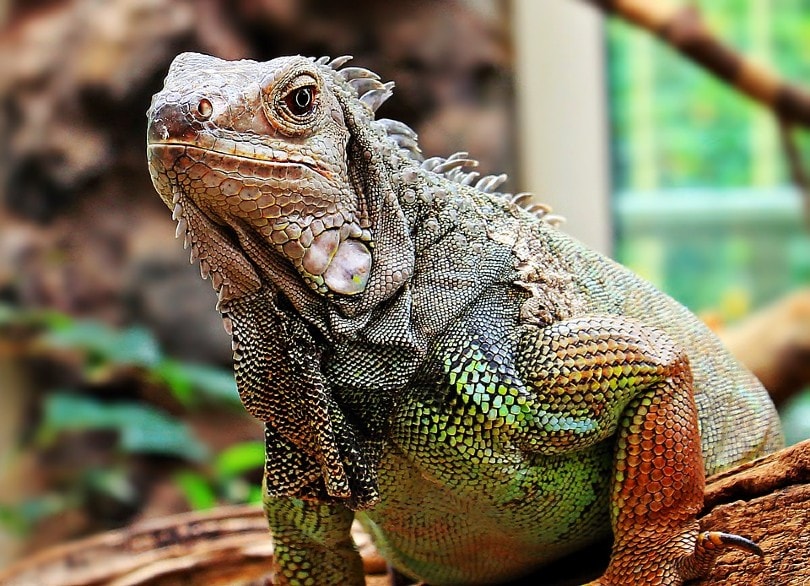
Behavior and Handling
Iguanas are one of the most sought-after reptile pets in the world, but that doesn’t mean that just anybody can take care of them. Iguanas have a lot of different ways of communicating and could be dangerous if you have no experience with them. They show a wide range of emotions like happiness, anger, fear, and agitation. They could bite, claw, or whip its tail if it is scared or uncomfortable with who is handling them.
Iguanas do well when being handled by humans from a young age. It is important to continue to handle them regularly, or they may become aggressive towards their owners or others. This isn’t to say they won’t make a good pet; they just need someone who understands them.
Housing
One of the most unexpected shocks to people is that their pet iguana reaches up to 7 feet in length as they mature. On top of that, they can get as heavy as 20 pounds. Their large size requires an even wider enclosure for them to live in, and most commercial enclosures don’t fit their needs. Adequate habitats are around 12 feet long, 8 feet tall, and 6 feet wide. You must keep it clean and remove waste, uneaten food, and old skin daily.
Iguanas want to bask in the sun all day and enjoy their enclosures being kept around 95°F. Do not ever let the tank temperature drop below 75°F. UVB bulbs are essential for giving them the necessary light exposure and should be kept on for 10 to 12 hours every day. They also require a humidity level of 70%, and you should mist your iguanas with clean water at least two or three times a day to keep their skin healthy and regulate the humidity.
Health & Care

The biggest health concern with iguanas is that they are known for carrying salmonella in their digestive tracts. Humans can acquire these bacteria simply from touching the reptile or the items inside of its enclosure. You must always wash your hands thoroughly before and after handling them to prevent the spread of diseases to children, pregnant women, or other immunocompromised people.
The most common health issue for iguanas is a kidney disease that results from dehydration. Most owners don’t regulate the humidity levels in their iguana’s environment. They must always have a moist environment and juicy greens and fruits for them to eat.
- See also: How to Take Care of a Pet Iguana
Suitable for:
Experienced reptile owners who are capable of providing them with all of their basic demands. They need mature individuals who won’t get scared if they act out and can handle them with confidence.
- Related Read: Do Australian Water Dragons Make Good Pets?

Which Pet is Right for You?
We hope that after reading this quick comparison of Chinese Water Dragons vs Iguanas you’ve decided which one is right for you. Chinese Water Dragons are more family-friendly reptiles. They require much less care than iguanas and are smaller, so you’re more likely to find all their needs at your local pet store. Iguanas, on the other hand, require an owner who has experience with reptiles and won’t shy away from them when they inevitably act out. They are large animals that need tons of space to move around and aren’t well-suited for most children.
Featured Image Credit: Top – InspiredImages, Pixabay | Bottom – RitaE, Pixabay
